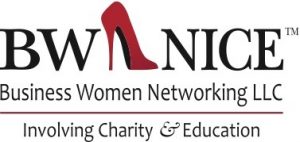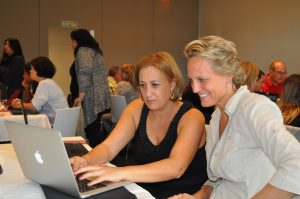BW NICE Mentor GuidelinesYourCyberPartner2018-10-28T18:34:00-04:00

BW NICE Corporate Mentor
Program Definitions and Guidelines
Definition
Mentoring is a process in which an experienced individual helps another person develop goals and skills through a series of time-limited, confidential, one-on-one conversations and other learning activities. Mentors also draw benefits from the mentoring relationship. As a mentor, you will have the opportunity to share your wisdom and experiences, evolve your own thinking, develop a new relationship, and deepen your skills as a mentor.
Types of mentoring relationships
There are many kinds of mentoring relationships, ranging from informal to formal. An informal mentoring relationship usually occurs in a spontaneous format. (Think of times you have been helped by someone more experienced than you without explicitly asking to be mentored.) Informal mentoring may also occur within the context of other relationships such as a supervisory relationship or even peer relationships.
A formal mentoring relationship is characterized by its intentionality – the partners in the relationship ask for or offer the mentoring opportunity, establish goals for the relationship, and make agreements about its nature. There are also mentoring programs that facilitate formal mentoring relationships. These relationships have a structure and a series of processes designed to create effective mentoring relationships.
The BW NICE Corporate Mentor Program structure includes the following:
- an application process
- a mentor-mentee matching
- orientation programs
- ongoing mentoring meetings
- an assessment of the experience
What does the mentor bring to the mentoring relationship?
KEY MENTORING SKILLS: Listening Actively, Building Trust, Determining Goals and Building Capacity, Encouraging and Inspiring.
 Listening actively is the most basic skill you will use throughout your relationship. Active listening not only establishes rapport but creates a positive, accepting environment that permits open communication. By listening actively, you will ascertain your mentee’s interests and needs. Examples include the following:
Listening actively is the most basic skill you will use throughout your relationship. Active listening not only establishes rapport but creates a positive, accepting environment that permits open communication. By listening actively, you will ascertain your mentee’s interests and needs. Examples include the following:
- Show interest and reflect back important aspects of what was said to show that you’ve understood.
- Use body language (such as making eye contact) that shows you are paying attention to what he or she is saying.
- If you are talking by phone, reduce background noise and limit interruptions. Your mentee will feel that he or she has your undivided attention.
- Reserve discussing your own experiences or giving advice until your mentee has had a chance to thoroughly explain her concern.
 Trust is built over time. You will increase trust by keeping your conversations and other communications with your mentee confidential, honoring your scheduled meetings and calls, consistently showing interest and support, and by being honest with your mentee.
Trust is built over time. You will increase trust by keeping your conversations and other communications with your mentee confidential, honoring your scheduled meetings and calls, consistently showing interest and support, and by being honest with your mentee.
 As a role model, you will have your own career and personal goals and share these, when appropriate. It is also likely that you will be asked how you set and achieve your own goals. In addition, you can help your mentee identify and achieve her career and personal goals. You will develop your mentee’s capacity for learning and achieving goals by doing the following:
As a role model, you will have your own career and personal goals and share these, when appropriate. It is also likely that you will be asked how you set and achieve your own goals. In addition, you can help your mentee identify and achieve her career and personal goals. You will develop your mentee’s capacity for learning and achieving goals by doing the following:
- Assisting with finding resources such as people, books, articles, tools and web-based information.
- Imparting knowledge and skills by explaining, giving useful examples, demonstrating processes, and asking thought-provoking questions.
- Helping her gain broader perspectives of responsibilities and organization.
- Discussing actions you’ve taken in your career and explaining your rationale.
 Encouragement is the mentoring skill most valued by mentees. There are many ways to encourage your mentee.
Encouragement is the mentoring skill most valued by mentees. There are many ways to encourage your mentee.
- Comment favorably on her accomplishments.
- Communicate your belief in her capacity to grow personally and professionally.
- Respond to frustrations and challenges with words of support, understanding, encouragement and praise. Just knowing that someone else has been there can be tremendously helpful.
You can also inspire your mentee to excel. Examples include the following:
- Share your personal vision or those of other leaders.
- Describe experiences, mistakes, and successes you or others have encountered on the road to achieving your goals.
- Talk about people and events that have inspired and motivated you.
- Introduce her to your colleagues who can be additional useful contacts or inspiring models.
Reflecting on your mentoring practice, noting use of the key mentoring skills, observing progress made in the relationship, and requesting feedback from your mentee are excellent ways to assess whether you are employing these skills.
- Most of us have had a teacher, supervisor, coach or relative that made a positive difference in our lives. This is an opportunity for BW NICE members to give back.
- Mentors report very high satisfaction in the relationship they cultivate: both learning from the mentee’s perspective and helping others to navigate the complexities of work and life.
- You may even learn something new to add to your own knowledge base.
Your time commitment per meeting depends on how you can schedule the meetings. We recommend at least 2 hours per month.
- Although the first meeting will usually be in-person, the remaining meetings may be by phone or in-person depending on your schedule and location of the mentee.
- Mentor meetings are ongoing for at least 6 months or as long as the pair would like to continue.
- We recommend that the mentor bring the mentee to at least one BW NICE breakfast meeting to introduce the mentee.
For more information:
Dr. Carol-Anne Minski
BW NICE Director Corporate Mentor and Internship Programs
cminski@hotmail.com
215.688.2311


 Listening actively is the most basic skill you will use throughout your relationship. Active listening not only establishes rapport but creates a positive, accepting environment that permits open communication. By listening actively, you will ascertain your mentee’s interests and needs. Examples include the following:
Listening actively is the most basic skill you will use throughout your relationship. Active listening not only establishes rapport but creates a positive, accepting environment that permits open communication. By listening actively, you will ascertain your mentee’s interests and needs. Examples include the following: Trust is built over time. You will increase trust by keeping your conversations and other communications with your mentee confidential, honoring your scheduled meetings and calls, consistently showing interest and support, and by being honest with your mentee.
Trust is built over time. You will increase trust by keeping your conversations and other communications with your mentee confidential, honoring your scheduled meetings and calls, consistently showing interest and support, and by being honest with your mentee. As a role model, you will have your own career and personal goals and share these, when appropriate. It is also likely that you will be asked how you set and achieve your own goals. In addition, you can help your mentee identify and achieve her career and personal goals. You will develop your mentee’s capacity for learning and achieving goals by doing the following:
As a role model, you will have your own career and personal goals and share these, when appropriate. It is also likely that you will be asked how you set and achieve your own goals. In addition, you can help your mentee identify and achieve her career and personal goals. You will develop your mentee’s capacity for learning and achieving goals by doing the following: Encouragement is the mentoring skill most valued by mentees. There are many ways to encourage your mentee.
Encouragement is the mentoring skill most valued by mentees. There are many ways to encourage your mentee.